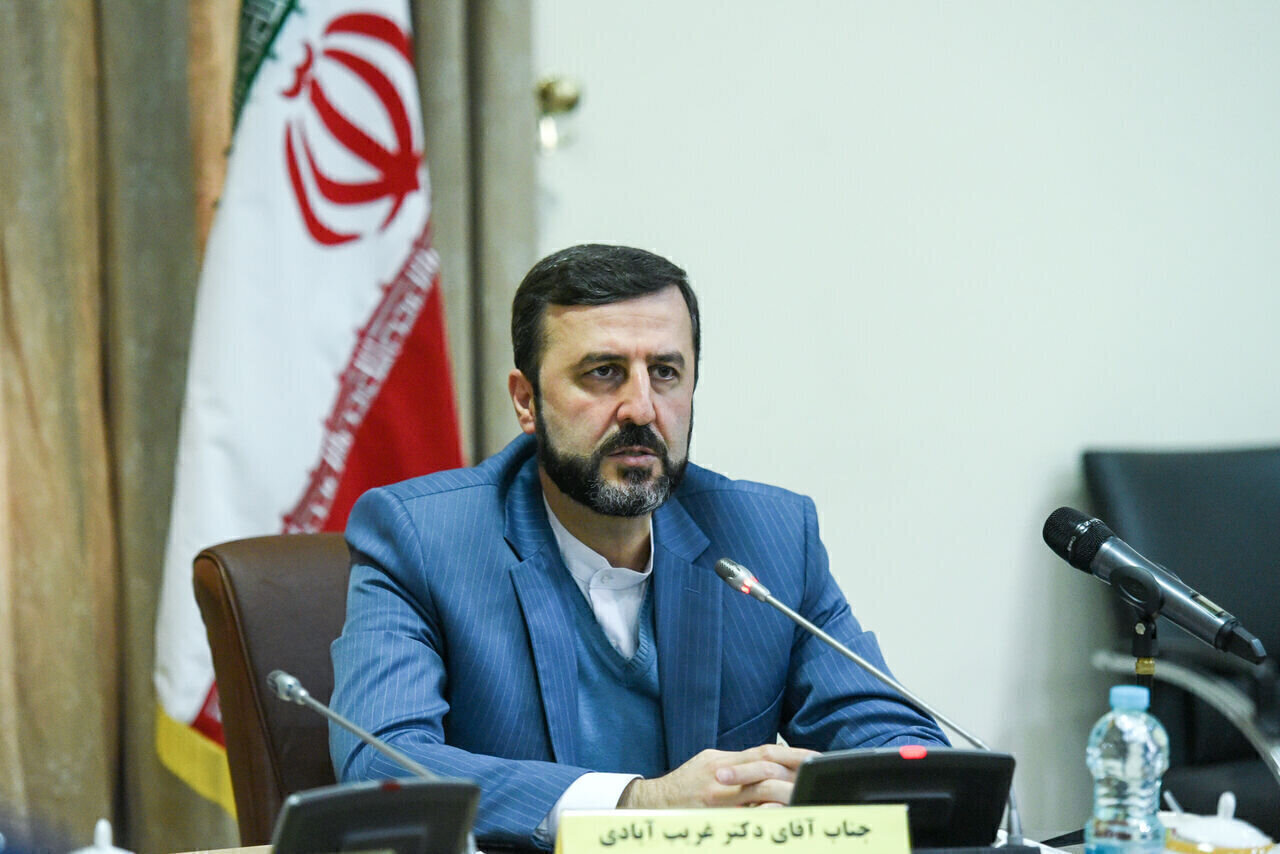Judiciary official calls on MEK hosts to expel members

TEHRAN - The Iranian deputy Judiciary chief for international affairs has said that Tehran has used a variety of legal strategies to prosecute MEK members.
Speaking at an event on Sunday honoring the martyrs of the 7th Tir, Kazem Gharibabadi said that the MEK is still a terrorist organization.
He went on to say that countries who provide asylum to MEK must be held accountable for harboring “these criminals” who have slaughtered 17,000 Iranians.
Gharibabadi pleaded with the nations to expel the MEK members and even hand them over to stand trial. However, he pointed out that Iran will keep up its legal actions.
Gharibabadi, the chief of Iran’s High Council for Human Rights, said no terrorist must feel safe anywhere in the world.
Gharibabadi also denounced the assassination of General Qassem Soleimani and his companions, describing the move as a horrible act against nations that combat terrorism.
Gharibabadi stated that the killing of two major commanders in the fight against terrorists in Iran and Iraq was not only a crime against the people of Iran but also against those in the region and countries involved with terrorist groups.
In the January 2020 drone attack on General Soleimani near Baghdad’s international airport, Muhandis Abu Mahdi, the deputy chief of Iraq’s Popular Mobilization Forces (PMF), was also martyred.
Gharibabadi continued by criticizing America’s violent past, noting that nation had killed more than 35 million people throughout the course of its short history.
He gave instances like the 27 million red-skinned individuals who died at the establishment of America and the 4.5 million troops and civilians who died in the Vietnam War.
Additionally, he emphasized how America was complicit in murders and other crimes against humanity in Afghanistan, Iraq, Mexico, Cuba, and Nicaragua.
Furthermore, Gharibabadi highlighted America’s record on human rights violations within its own borders.
He noted that over 4,000 women are killed every year in America, and more than 4,000 die in its prisons.
In light of these facts, Gharibabadi contended that America is not in a position to discuss human rights and that it is “our responsibility” to make the people aware of these atrocities all over the world.
Gharibabadi’s remarks reflect Iran’s continued condemnation of America’s conduct regarding General Soleimani and its broader foreign policy stance.
He also said that imposing “cruel illegal unilateral sanctions” against the Iranian people is one of the United States’ crimes.
“The most severe and cruel sanctions against the Iranian nation have been imposed by the United States,” Gharibabadi pointed out.
According to prominent jurists, sanctions should be considered as tantamount to arms, he said, adding that the sanctions are not software, but hardware against humanity.
Perhaps the use of weapons will result in the death of a small number of people, the official said, but sanctions not only result in the death of more people but also do significant harm in a variety of areas.
Back in April, Gharibabadi blasted international institutions for failing to take a stand against the degradation of human rights conditions in Western nations.
“The world suffers from fundamental challenges and dilemmas regarding human rights, mainly caused by the actions of countries that claim to be defending human rights and see themselves in the position of making demands of others and being immune from any criticism and responsibility,” Gharibabadi said in a letter to Volker Turk, UN High Commissioner for Human Rights.
“In these circumstances, it is crucial for the international human rights institutions to uphold independence, impartiality, professionalism, and non-selectivity in order to protect and advance human rights. Adopting politically-motivated and selective approaches is harmful to human rights, does a terrible injustice to them, and undermines public confidence in human rights procedures,” added Gharibabadi.
He alerted the commissioner to “certain circumstances during the last six months in numerous nations involving the right to freedom of assembly and of association,” noting that “France often observes enormous public protests against the government’s policies.”
The human rights chief went on to say, “Up to two million people have taken part in demonstrations in some instances. The French government used extensive violence to disperse the protests rather than paying attention to their concerns and working to improve the situation. The French government’s response included using anti-riot equipment, beating civilians, and rounding up thousands of demonstrators.”
In response to recent riots in Iran, Gharibabadi stated, “Triggered by incitement and support from specific states, media outlets, and terrorist groups, recent gatherings in the Islamic Republic of Iran diverged from their peaceful nature and morphed into riots, causing violations of citizens’ fundamental rights, including but not limited to the right to personal liberty and security, the right to freedom of movement.”
He concluded the letter by reminding the commissioner of its duties and responsibilities, asking why it gives the cold shoulder to human rights’ infringement perpetrated by certain Western nations.
